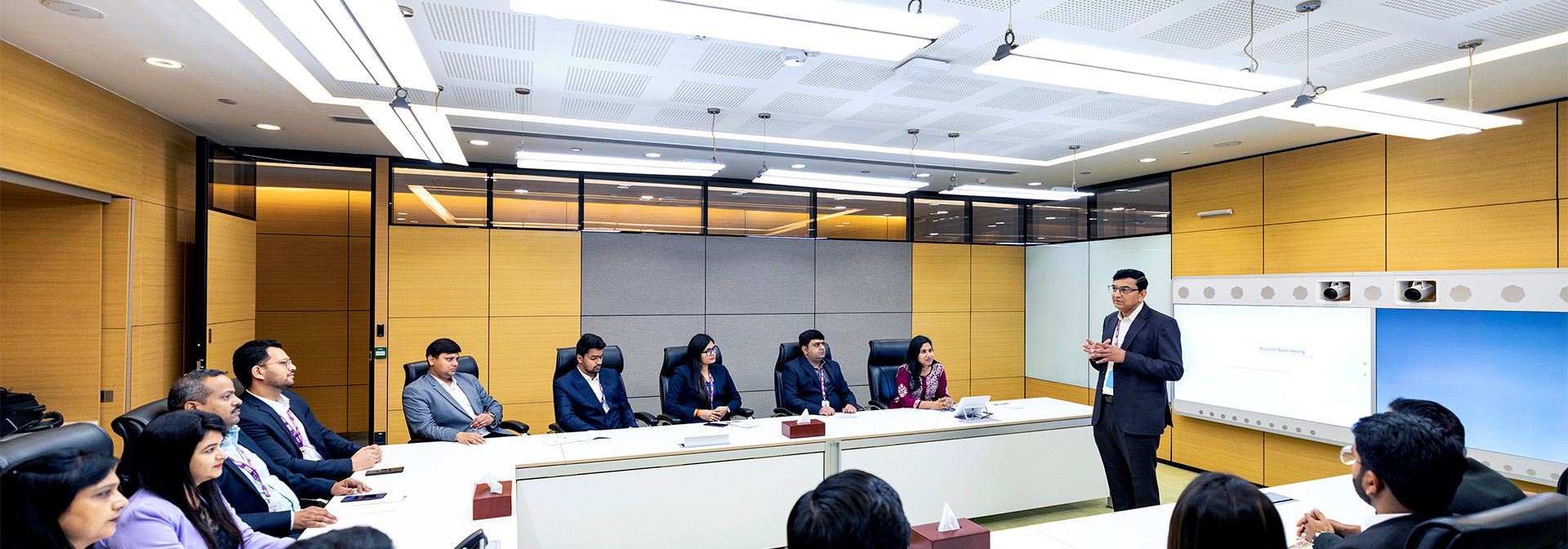Social – Employees
Building a
Culture of Care
| Female | Male | Total | |
|---|---|---|---|
| Junior Management (Assistant Manager and below) |
3 | 133 | 136 |
| Middle Management (Deputy Manager to General Manager) |
1 | 110 | 111 |
| Senior Management (Assistant Vice President and above) |
0 | 2 | 2 |
| Total | 4 | 245 | 249 |
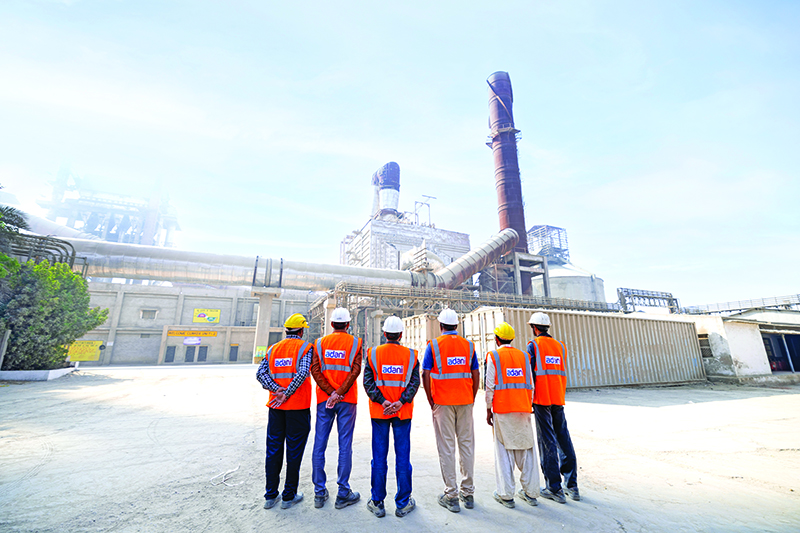
The Company promotes positive employee-management relations and has implemented initiatives like 'Career Conversations,' enabling discussions on rewards, role clarity, and career growth. Workshops and training sessions further enhance communication and collaboration.
Comprehensive training programmes and specific employee development initiatives with defined objectives are designed to improve employee skill and development. The Company’s parent, Ambuja Cements arranges ‘Digital Dexterity Programmes’ for all employees to ensure they are equipped with contemporary skills in times when operations are becoming digital by day.
With dedicated learning programmes for successor development, Ambuja Cements is also arranging virtual instructor-led master classes to facilitate wider participation and tailored web sessions on specific functional and leadership areas. At the unit level, numerous on-the-job training initiatives are in place, supported by internal faculty, subject matter experts, and functional leaders.
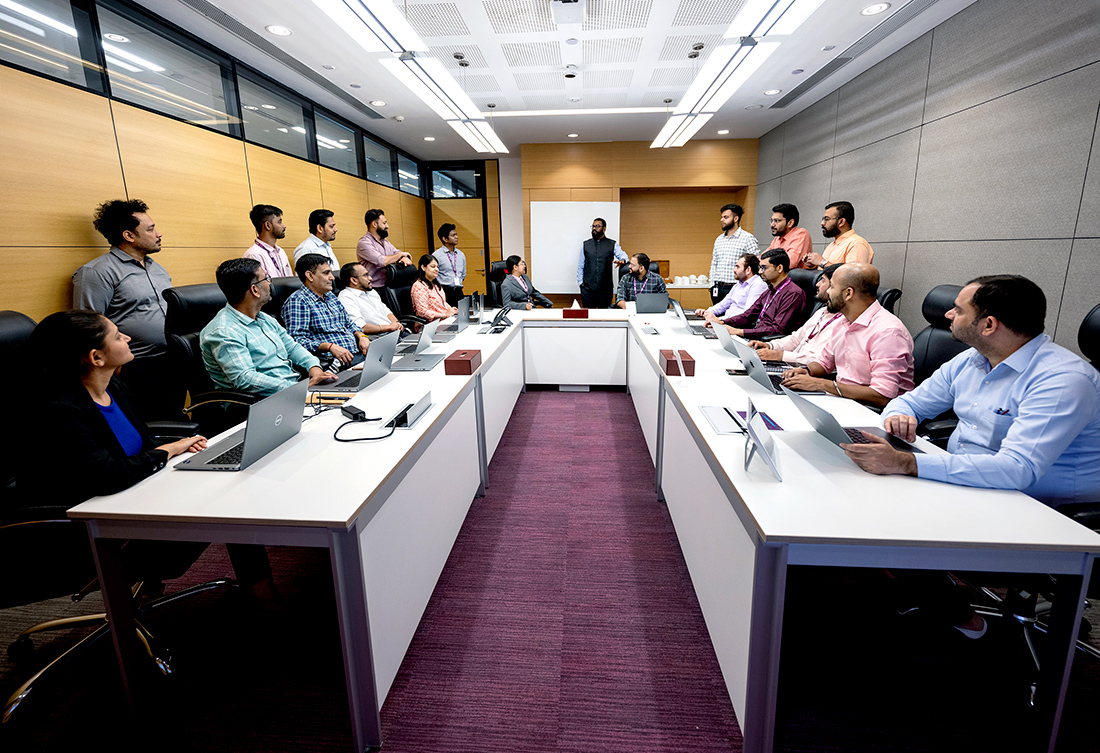
282
Topics covered
190
Employees skill upgradation
Ambuja Cements also fosters continuous learning through training programmes, workshops and digital upskilling initiatives. The Skill Development Centre empowers rural youth with industry-relevant training, while the Adani Institute of Digital Technology Management (AIDTM) offers Digital Dexterity Certification in IoT, AI and cloud computing.
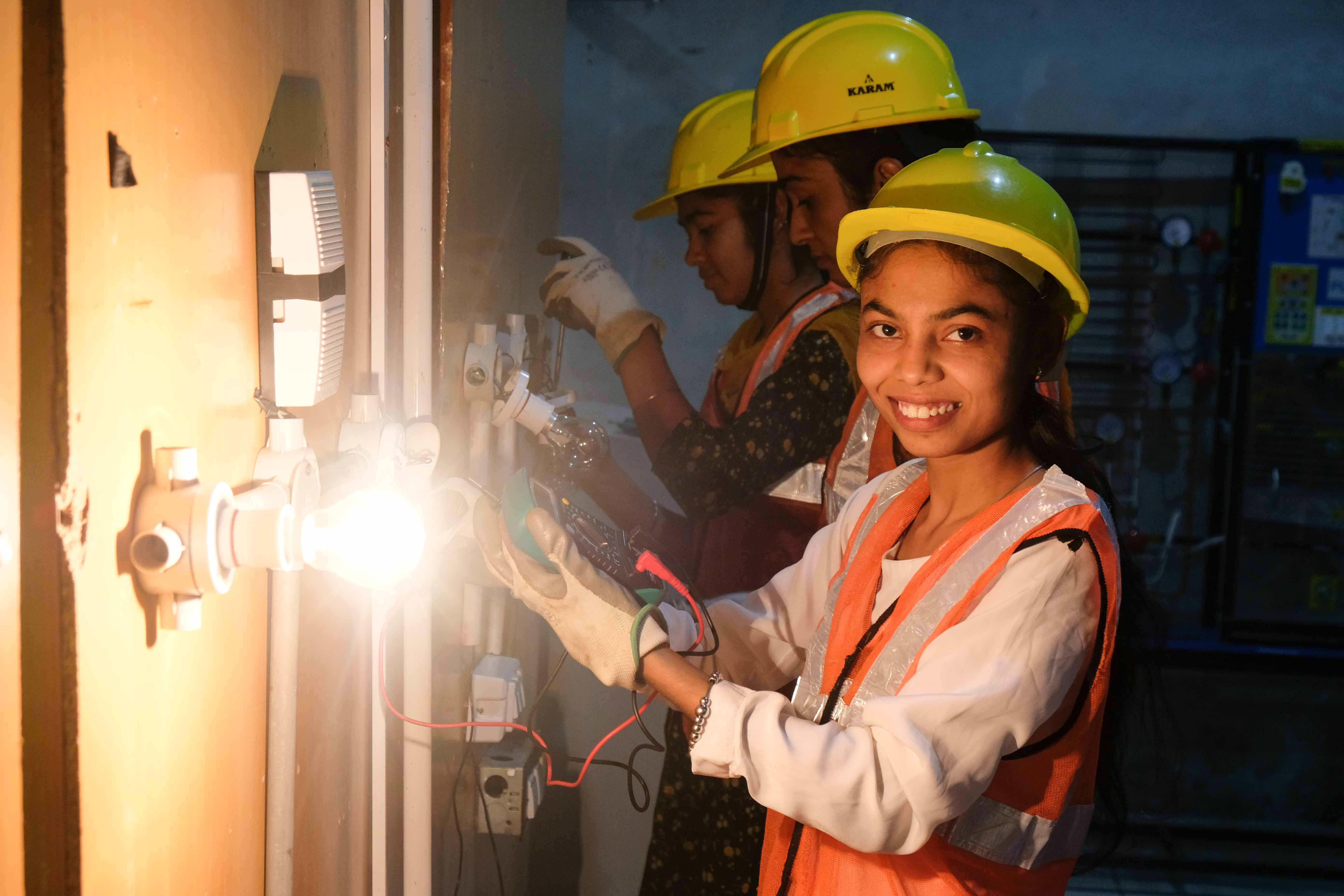
The Saksham initiative enhances self-reliance and managerial efficiency through Oracle Fusion, streamlining processes and enabling data-driven decisions. Ambuja Cements has also launched various training programmes post being recognised for its innovation towards digital transformation.
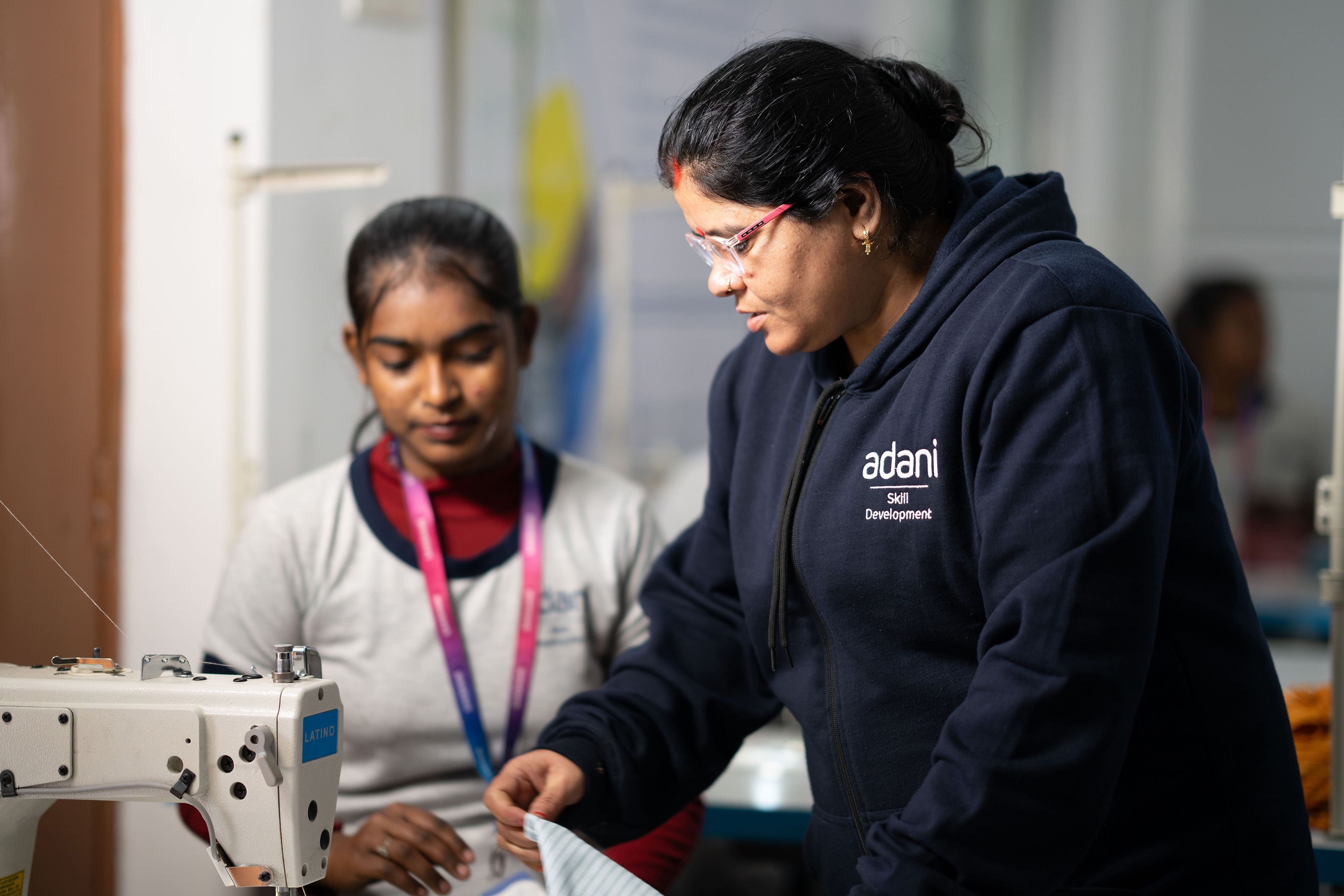
case study
To enhance productivity and accountability within the cement business, specialised training sessions on Governance, Risk & Compliance (GRC) and SAP Authorisation were conducted, focusing on the Segregation of Duties (SoD) concept. This initiative aimed to simplify complex processes while improving operational efficiency.
- Enhance team productivity and accountability
- Simplify governance and compliance processes
- Reduce time and costs associated with regulatory compliance and audits
- GRC tools enabled quicker resolution of compliance issues
- Simplified processes reduced operational overhead
- Time savings in audits and compliance activities lowered operational costs
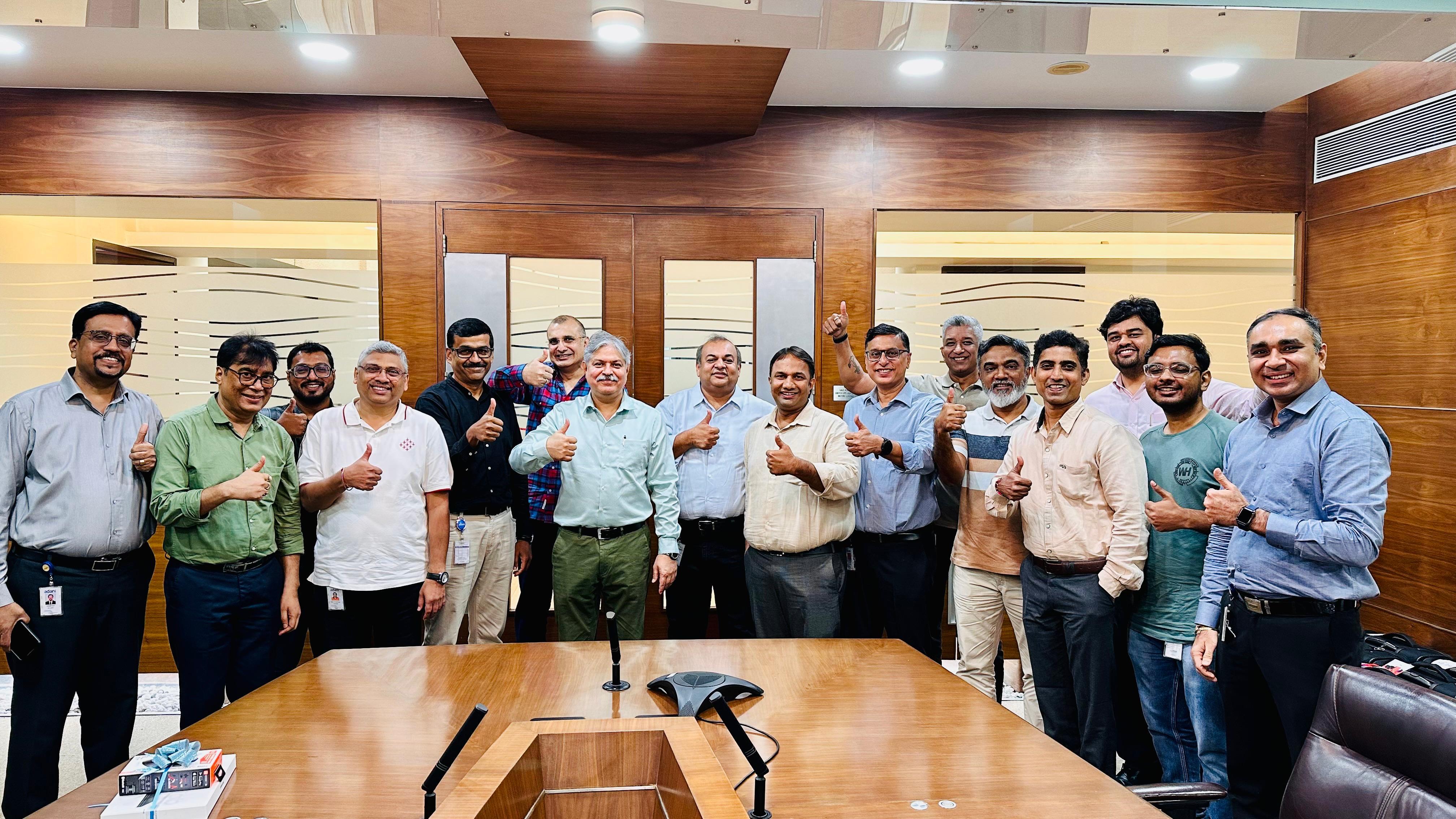
The Company prioritises employee well-being through comprehensive mental health support programmes, flexible working hours, generous leave policies, and various benefits, investing ` 2.41 crore in employee welfare during FY 2024-25. Its healthcare initiatives include mandatory annual health check-ups, health awareness communications and clinical support during hospitalisations.
The Adani Foundation strengthens employee well-being through various health initiatives, including the Adani Security Helpline for safety support and the Adani Emcare mobile app for healthcare management.
SIL offers flexible work options, sabbatical leave, and childcare facilities to foster work-life balance. Financial assistance for home ownership, car leases, and education is also provided, alongside extensive health insurance coverage and additional benefits to support employees and their families.
SIL's parent Ambuja Cements undertook significant mergers and acquisitions during the year, with focused efforts to ensure seamless integration. This included leadership transitions, role realignments, skill gap assessments, and targeted training programmes. A strong emphasis was placed on cultural integration to facilitate a smooth transition. The Company also conducted Leadership Connect sessions to support the integration, keeping employees informed, engaged and aligned with its vision.
SIL places a strong emphasis on inclusivity and diversity within its workforce, fostering a respectful and intellectually stimulating workplace. By prioritising equal opportunity employment, the Company effectively attracts, retains, and develops talent, enhancing its service to customers and communities. The Company upholds a zero-tolerance policy against discrimination and harassment, ensuring a safe environment that aligns with legal standards.
The Company promotes pay parity and an inclusive culture. Its robust diversity, equity, and inclusion (DEI) policy guarantees equal rights for all individuals, regardless of gender, ethnicity, or other characteristics.
Regular training programmes are arranged to educate employees on maintaining a harassment-free workplace, supported by a Policy on the Prevention of Sexual Harassment (PoSH). In FY 2024-25, there were no reported cases of discrimination or harassment.
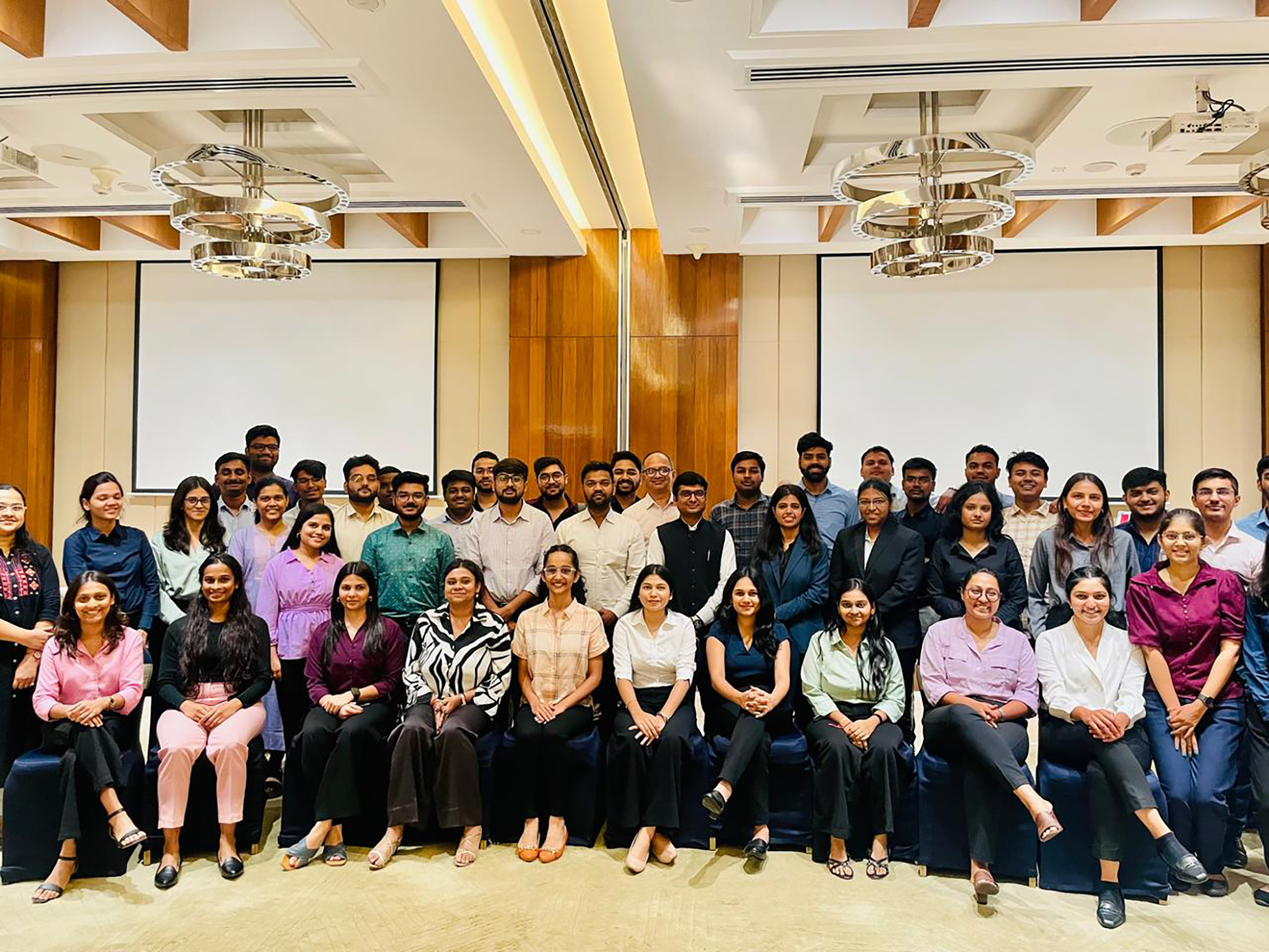
To empower women, the Company implemented the 'BeConnected' initiative to provide networking and mentorship opportunities, fostering community among female employees to support their professional growth and well-being while celebrating their contributions.
| Female | Male | Total | |
|---|---|---|---|
| Permanent Employees | 245 | 4 | 249 |
| Permanent Workers | 7 | 0 | 7 |
The Sabarmati Riverfront Sports Complex in Ahmedabad was abuzz as Adani Sports Line hosted the two-day Adani Sports Day for the employees of Adani's Cement Business. With 190 participants, the event featured relay races, tug of war, volleyball, and more, fostering teamwork, camaraderie, and fun. The days ended with a celebratory dinner for all.
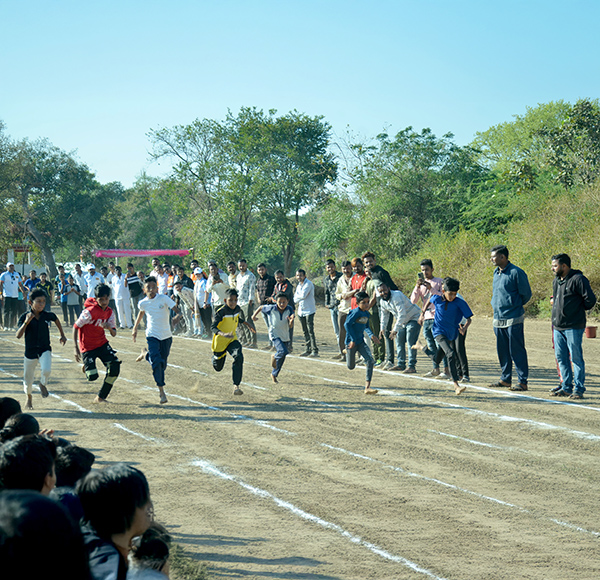
Adani Group's Performance Management System (PMS) streamlines goal setting, performance tracking, and evaluations, ensuring transparency and consistency. Under the system, high performers are identified, recognised and rewarded, fostering a culture of excellence. The Group also offers training and development programmes to enhance employee skills and capabilities, promoting continuous learning and skill enhancement.
Aligned with the Adani Group’s
strategic objectives, the Company
has set goals and strategies to
ensure every effort of the employees
contributes to its mission.
As a
part of these goals, the Company
identifies key performance indicators
(KPIs) to track success, with a
collaborative goal-setting process
involving managers and employees.
This approach ensures goals are
realistic, achievable and aligned with
individual roles.
At SIL, performance management goes beyond annual reviews, incorporating continuous feedback and development throughout the year. The Company believe regular manager-employee interactions help identify strengths, address improvement areas, and keep employees on track to achieve their goals.
The Company has adopted advanced performance management systems and productivity tools to drive employee efficiency. It developed the Cement Network Operating Centre (CNOC) dashboard, which leverages analytics to optimise output strategies. Digital solutions like the OneConnect app are also introduced to offer real-time workforce insights, enabling proactive decision-making and effective resource allocation.

The Adani Global Capability
Centre (GCC), located at
Shantigram, Ahmedabad,
is a
state-of-the-art facility dedicated
to driving operational excellence
and fostering innovation. It is
a central hub for integrating
and streamlining core business
functions such as HR, finance, IT,
procurement, and more. With a
focus on delivering value, this
centre represents a significant
step in Adani’s journey toward
global leadership
- Establish a centralised platform to integrate key business operations
- Foster collaboration and innovation across all functions
- Enhance efficiency and streamline processes for consistent service delivery
- Drives operational excellence through seamless integration of capabilities
- Promotes collaboration, ensuring better alignment with organisational goals
- Supports global operations by adopting international best practices
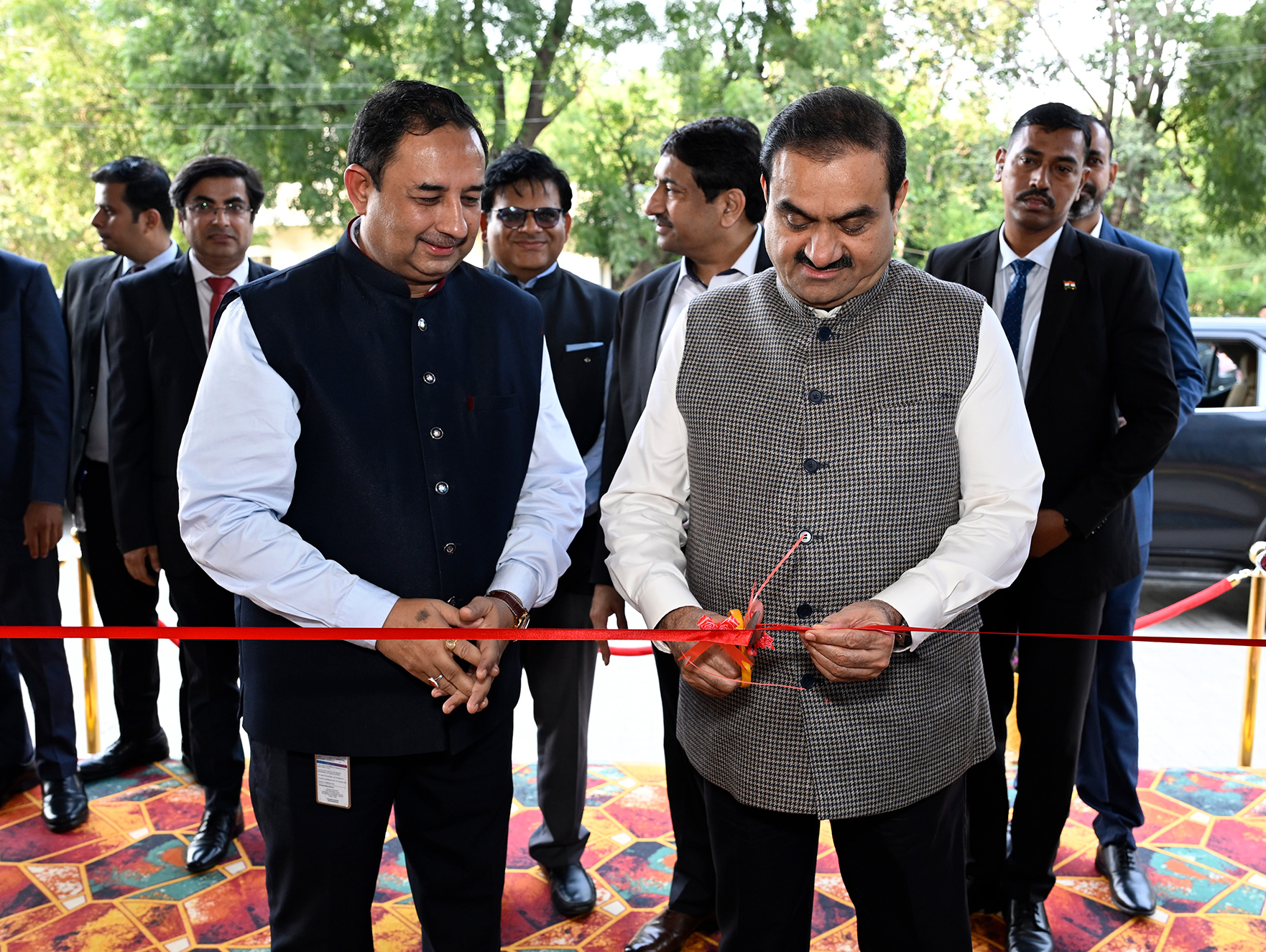
- Designed to enhance productivity and enable a culture of innovation
- Equipped with advanced technology to support diverse organisational needs
The Company is committed to fostering a strong safety culture within its team, striving to achieve the goal of 'Zero Harm.' Safety remains a priority, with a focus on leading the industry in health and safety performance. The goal is to create workplaces that are incident- and injury-free. Under Project Sankalp, SIL's parent, Ambuja Cements has onboarded a third-party to drive cultural change and elevate safety standards. This initiative includes conducting perception surveys, facilitating structured safety conversations, and implementing well-defined follow-up processes.
A robust safety culture is built on leadership accountability that empowers everyone to champion safer practices. The Company’s approach integrates top-down and bottom-up strategies, supported by governance systems and processes at all levels, to ensure continuous improvement in safety systems and practices.
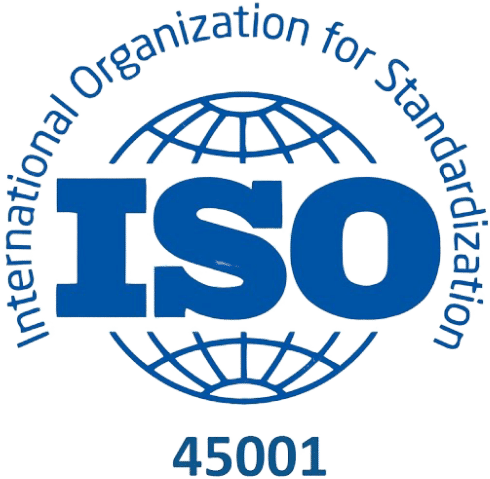
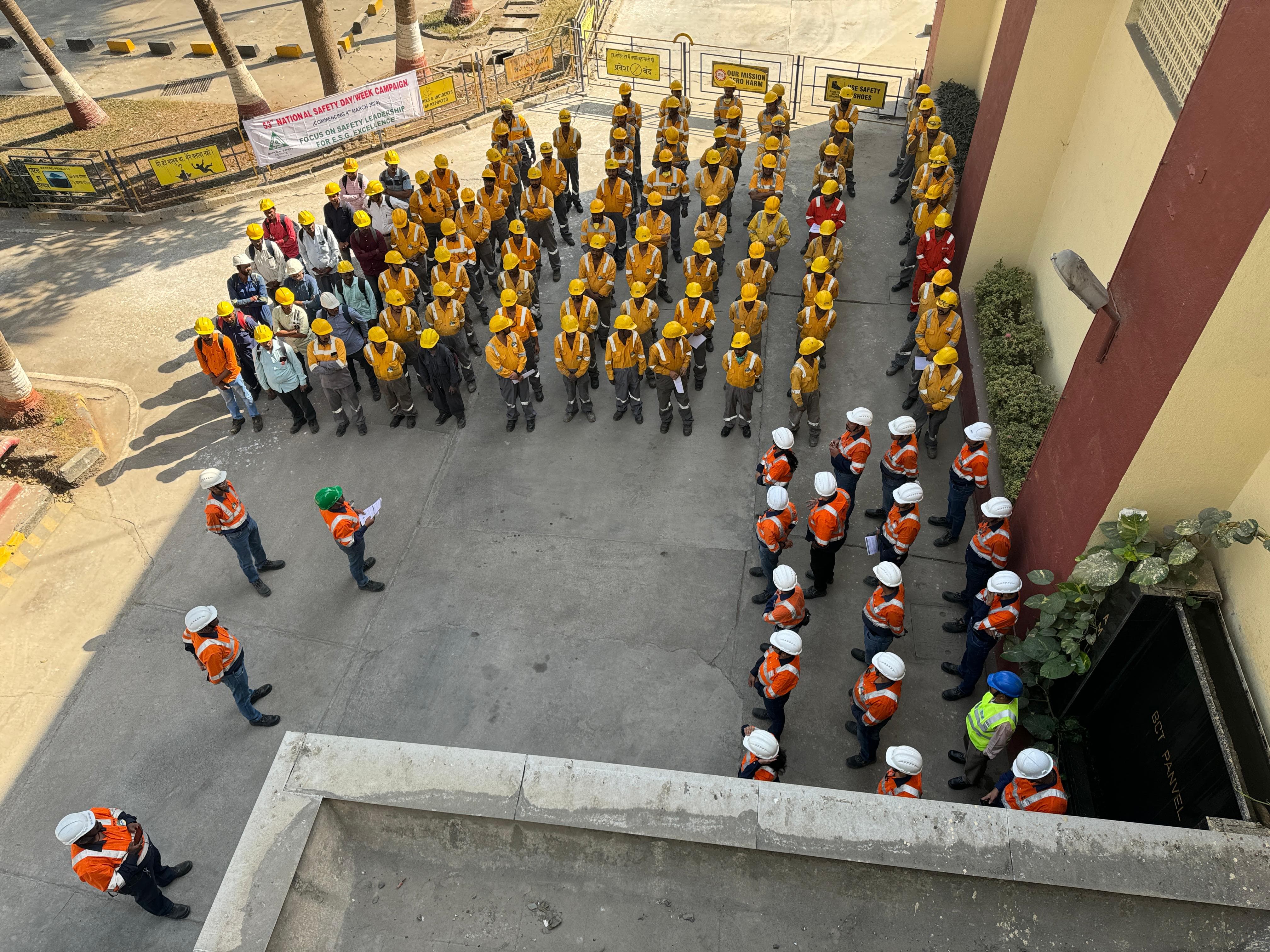
Leadership
Commitment &
Governance
Technological
Intervention for
System Assurance
Safe Execution Strategy
Safety Engagements
and Rewards
and Recognition
Training and
Capability Building
#SafetyCulture
case study
The 'WeCare' programme is dedicated to promoting safety among frontline workers and contract personnel, aiming for a 'Zero Harm' workplace. This initiative recognises and celebrates safety efforts while fostering a culture of accountability and awareness.
- Safety Heroes Recognition: Monthly identification of up to three 'Safety Heroes,' awarded a Golden Helmet and a ₹ 5,000 gift during the Safety Gate Meeting. 30 Safety Heroes were rewarded during FY 2024-25
- Suraksha Bandhan: Connects thousands across the organisation, including contractors and students, to foster emotional bonds
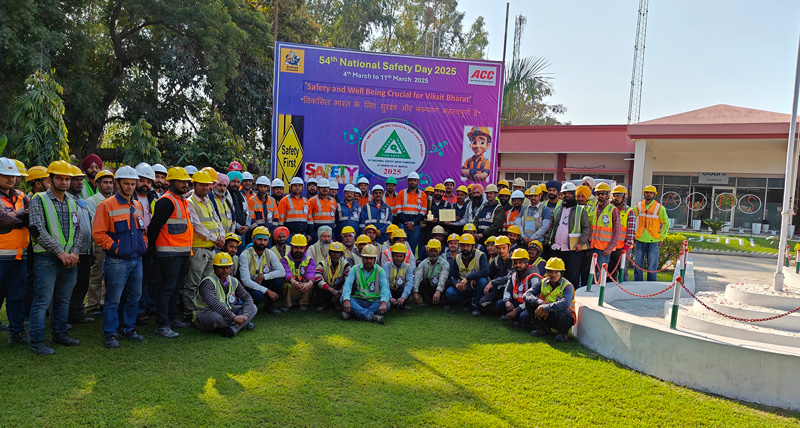
- Roko Toko: Empowers individuals to intervene in unsafe acts, encouraging leaders to address unsafe conditions proactively
- Learning from Incidents (LFI): Promotes sharing of personal safety experiences, recognised with appreciation letters and gift vouchers
- Monthly Campaigns: Engaging themes each month to drive safety awareness through online and offline initiatives, with rewards to motivate participation
- Anmol Parivar Mahotsav: Anmol Parivar Mahotsav launched across India, conducting 301 events and covering over 43,450 retailers
- Business Meets: Held 'Shikhar Samaroh' business meets across all RSOs pan-India, engaging top dealers for target planning and achievement
- New Dealer Induction Programme: Guided newly added network on the cement industry and future strategies with AAA
- Lakshya-e-Aasman: Launched a dealer loyalty programme nationwide
- Dealer Get Together: Organised dealer get-together programmes in various clusters to strengthen relationships
| Description | FY 2024-25 | FY 2023-24 |
|---|---|---|
| Fatal (On-site) | 0 | 1 |
| Lost Time Injury (LTI) | 4 | 1 |
| Restricted Workday Cases (RWC) | 0 | 0 |
| Medical Treatment Cases (MTC) | 1 | 0 |
| First Aid Cases (FAC) | 23 | 44 |
| Lost time Injury frequency rate (LTIFR) | 0.88 | 0.57 |
| Total Injury frequency rate (TIFR) | 1.09 | 1.14 |
